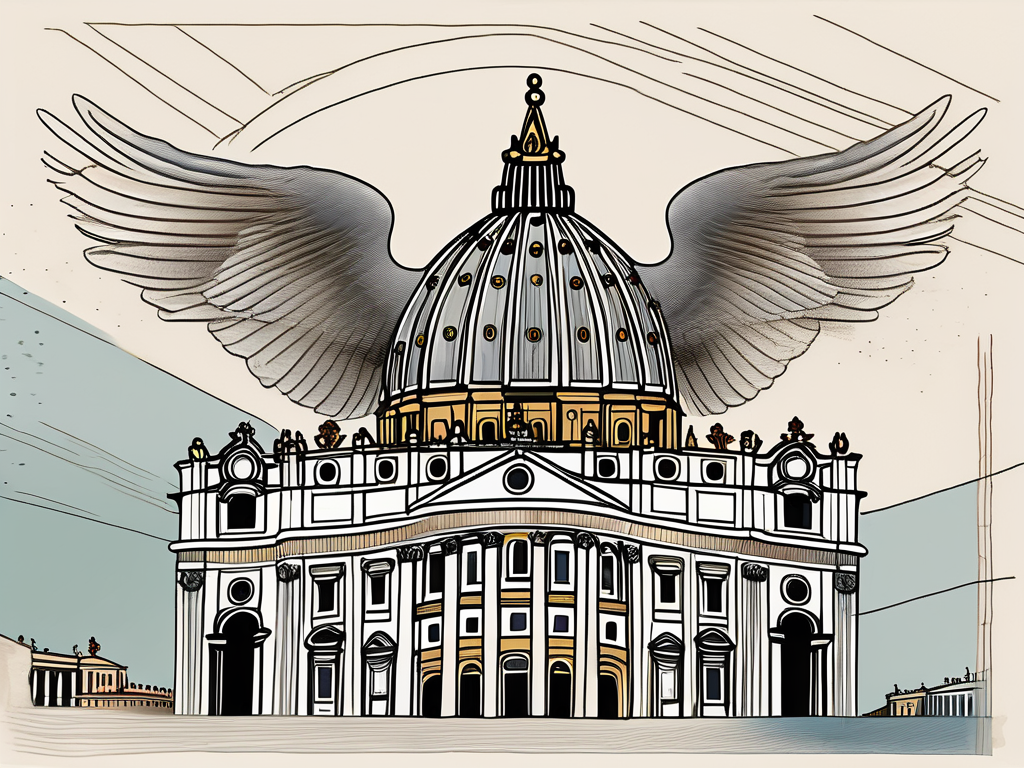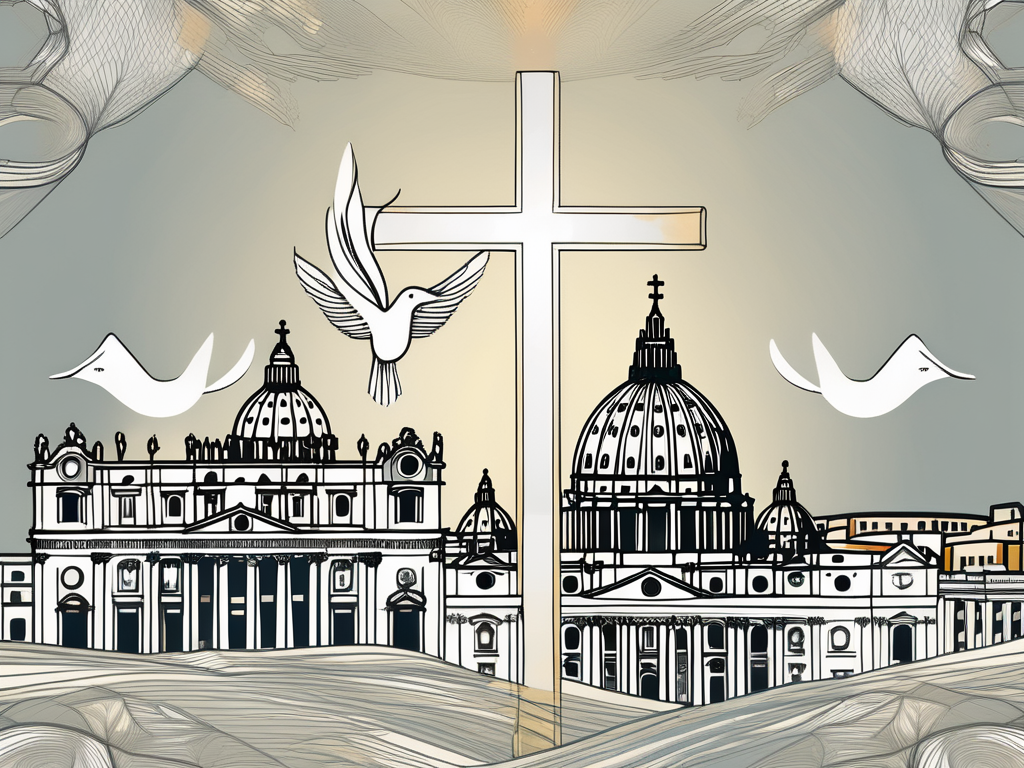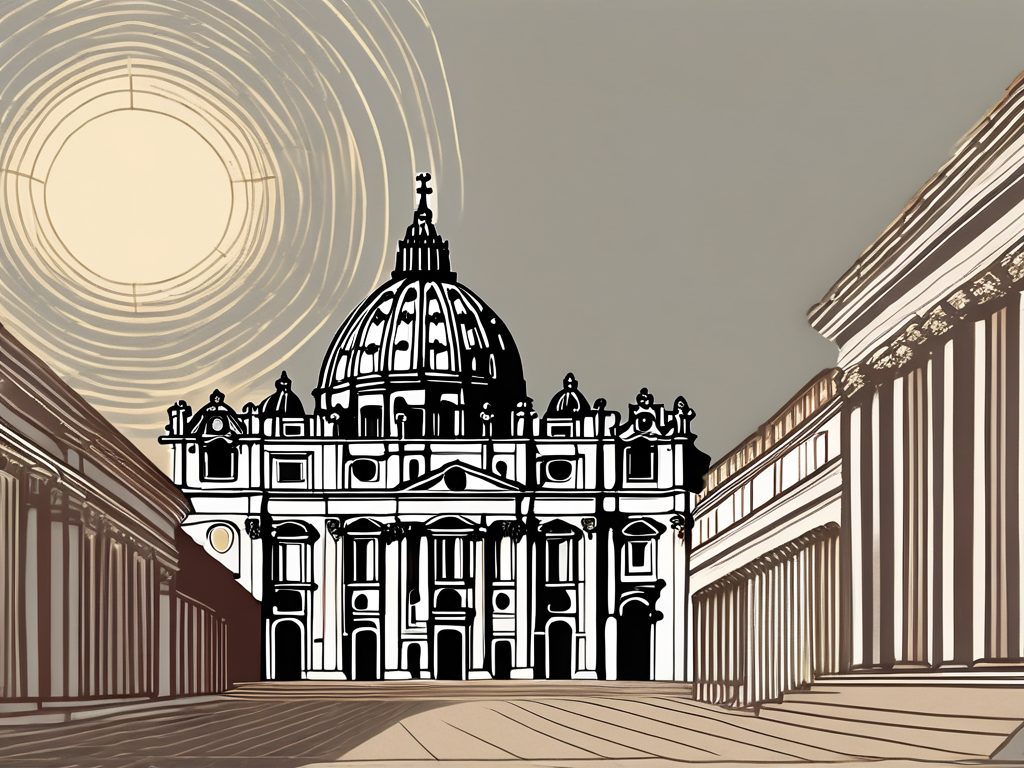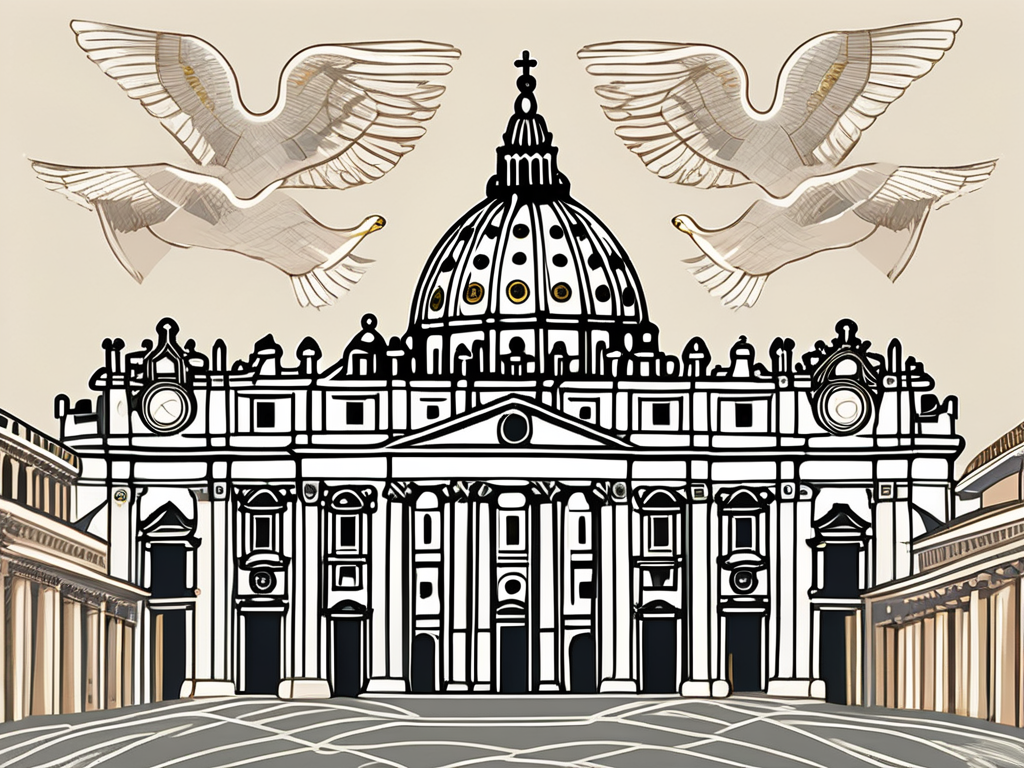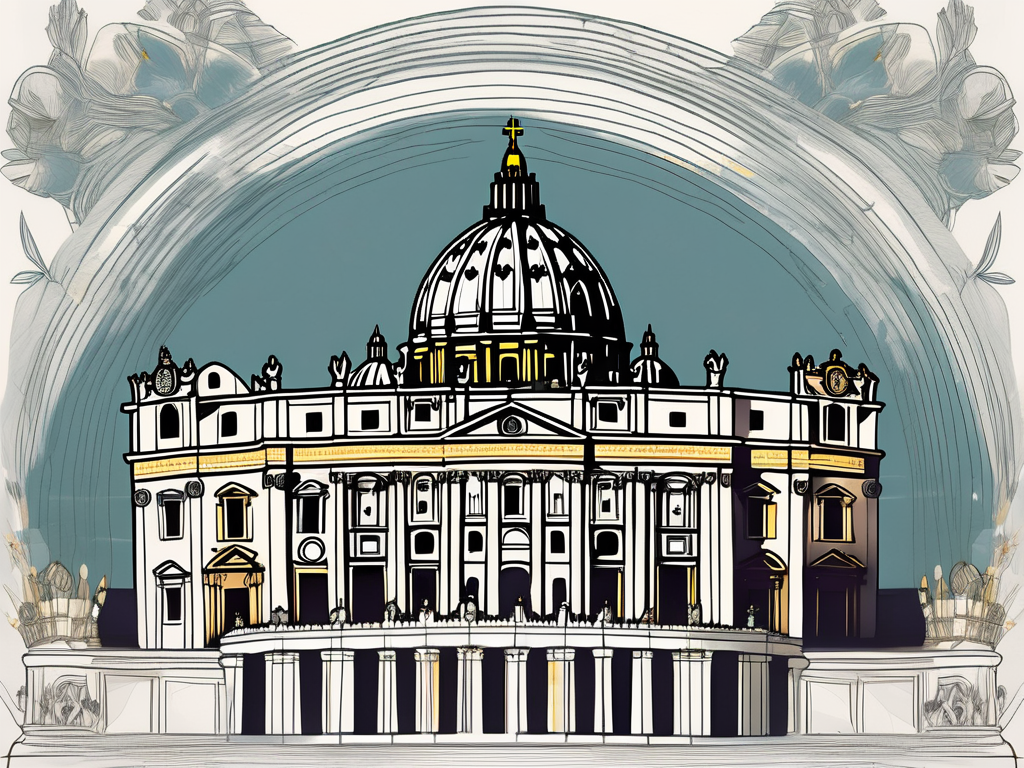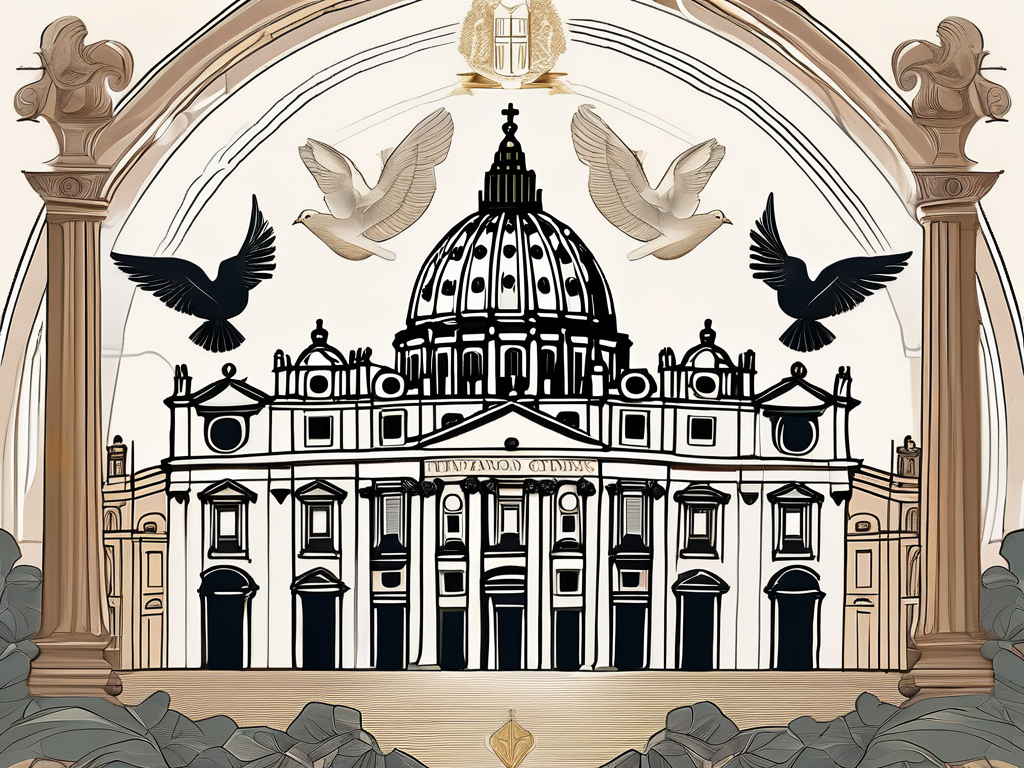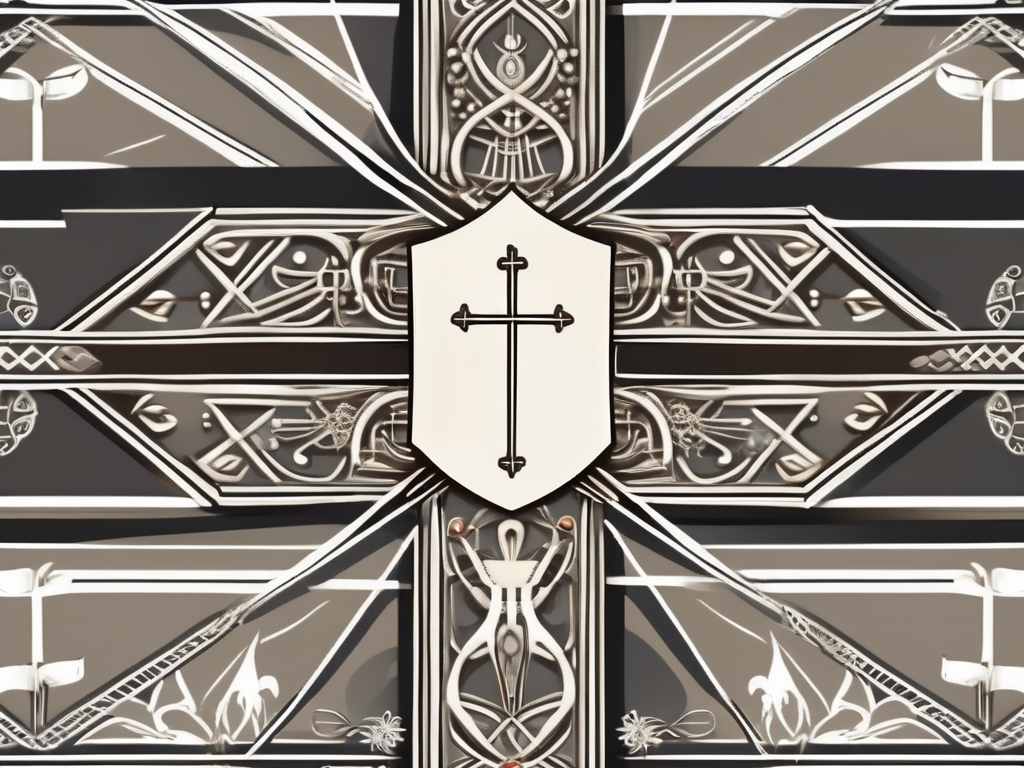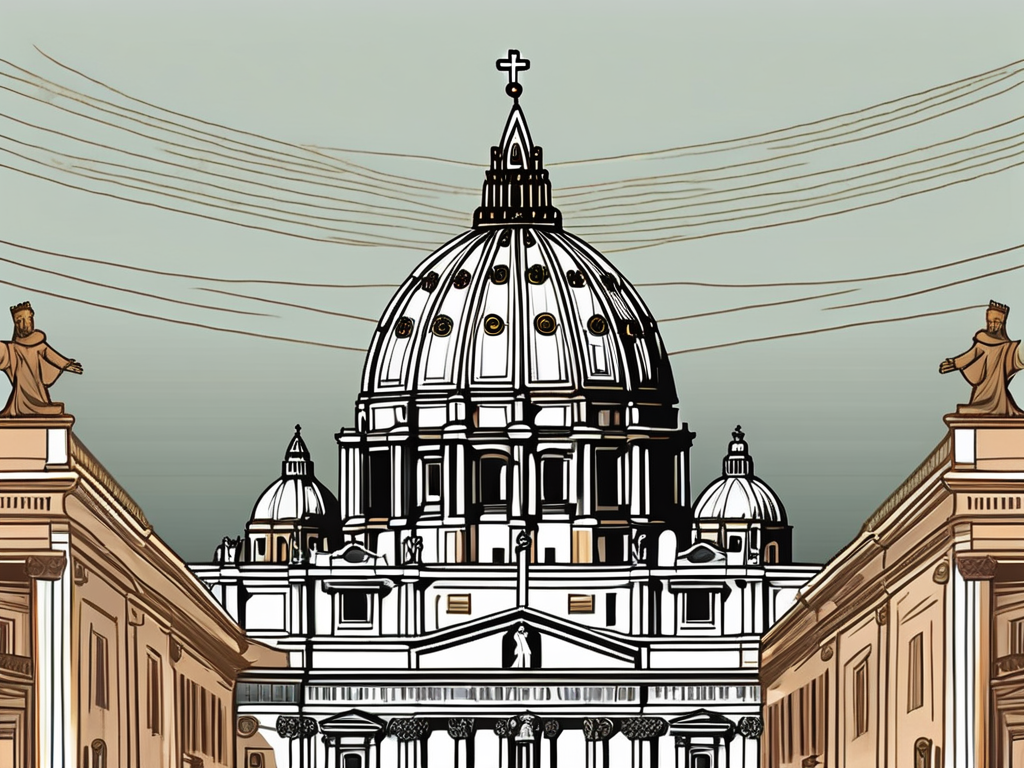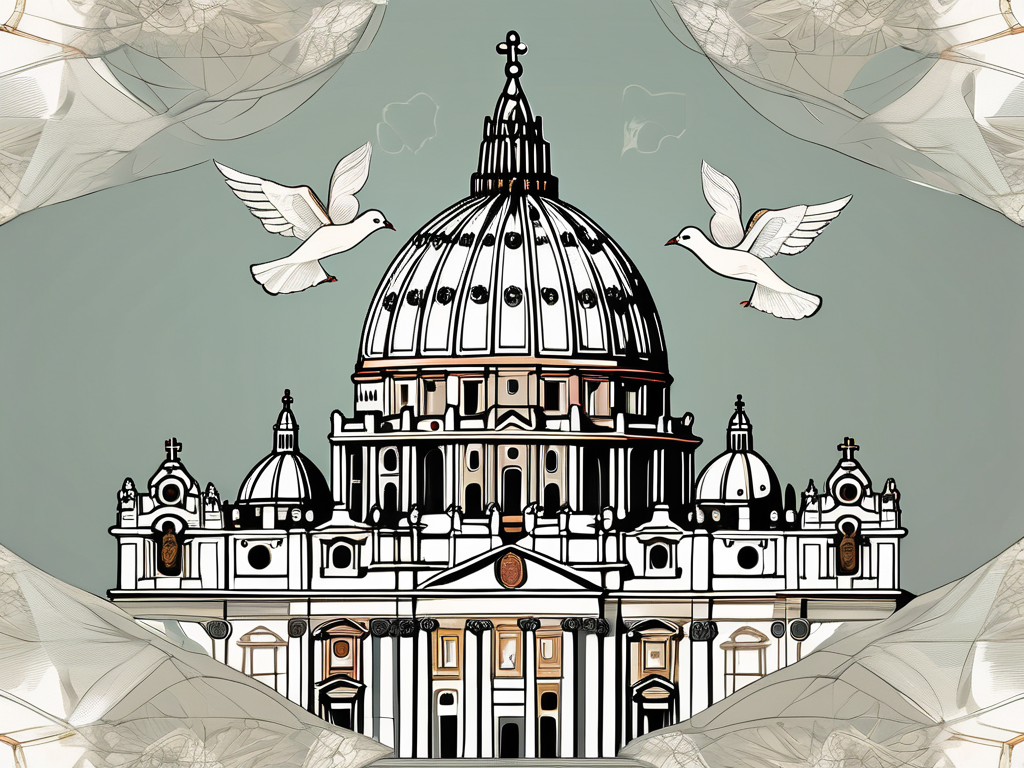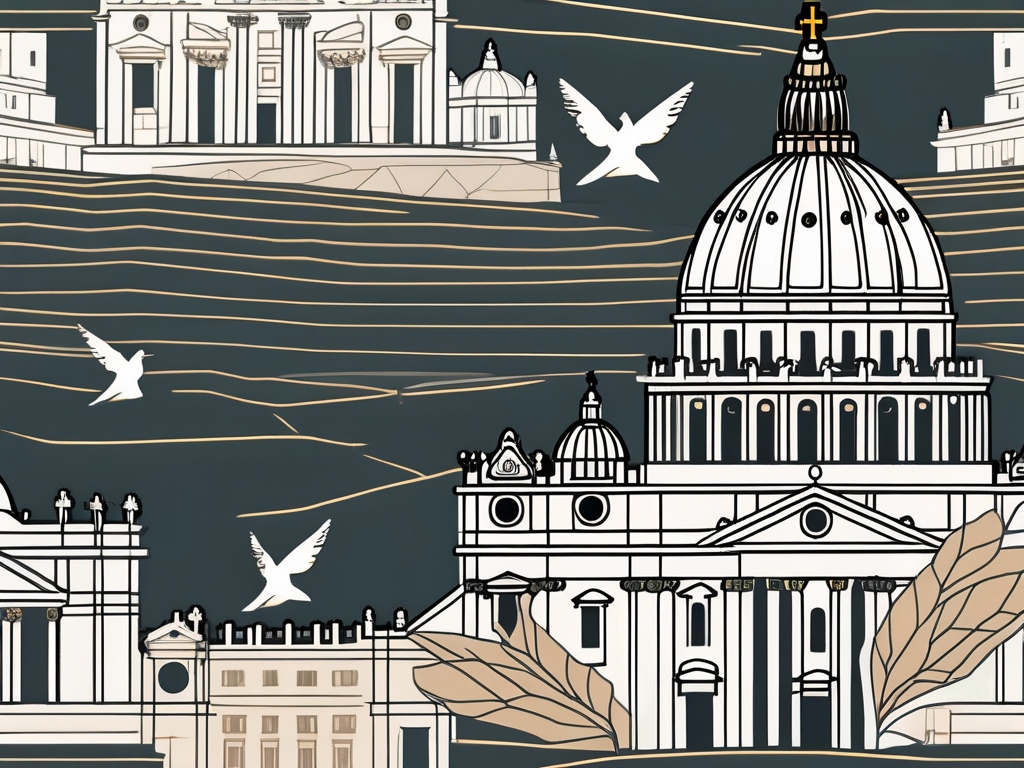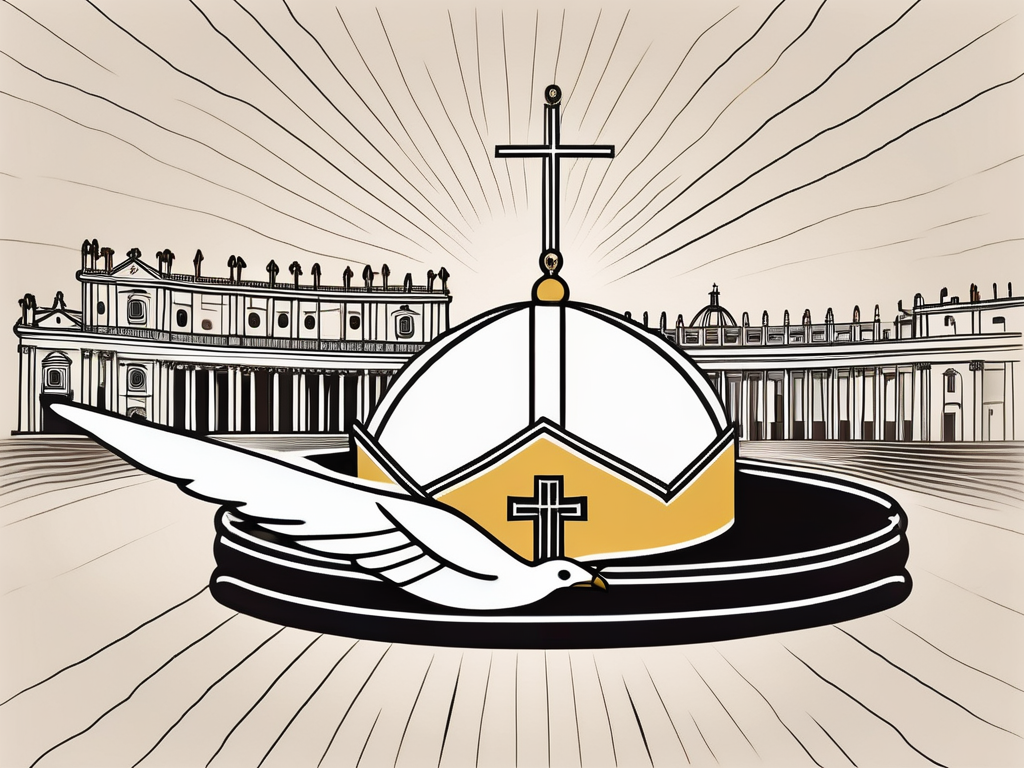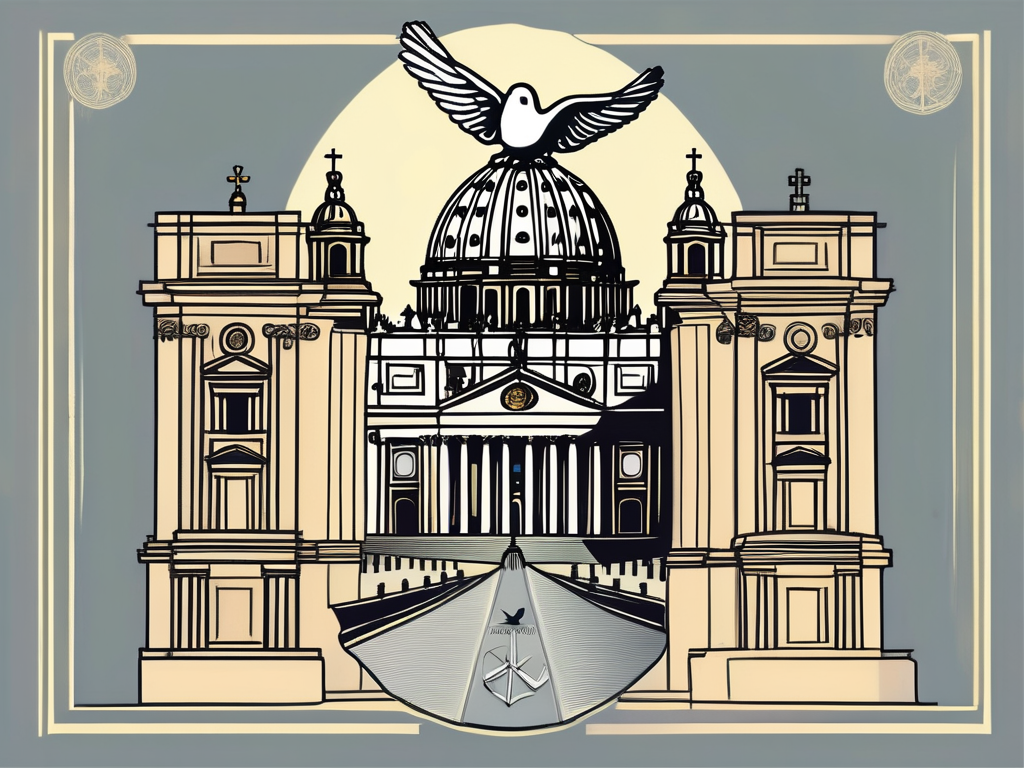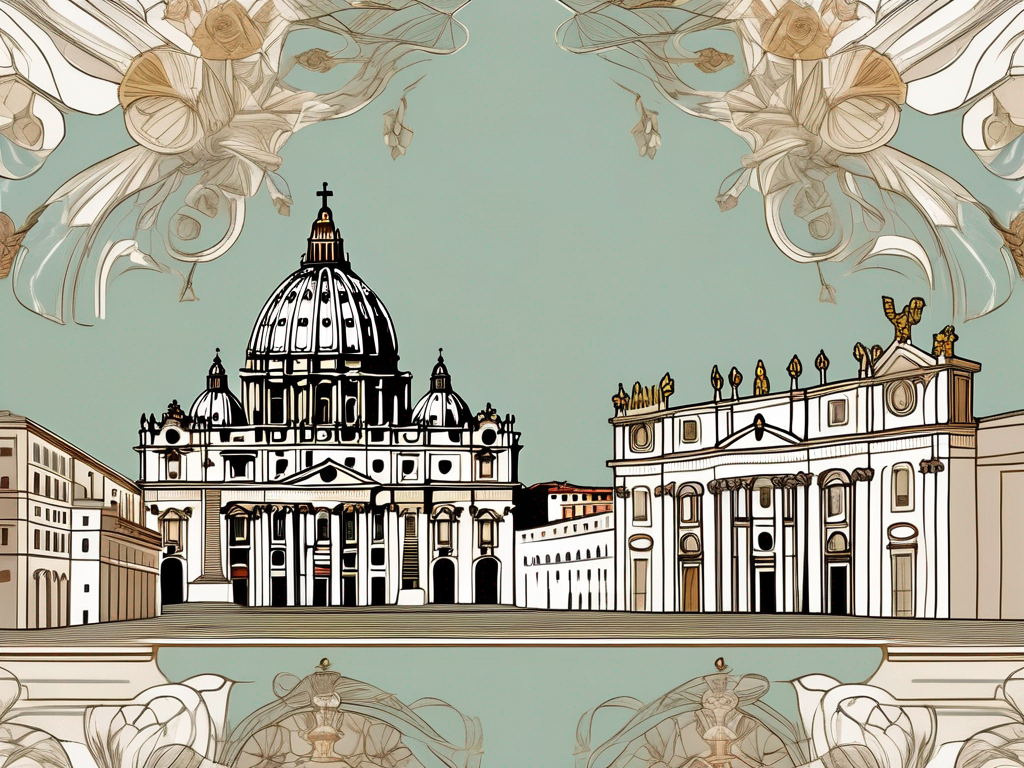Pope Gregory XIV, born as Alberto Galileo Giuseppe Giovanni Antonio Anastasio Vincenzo Bistagi, was a significant figure in the history of the Catholic Church. From his early life and education to his controversial papacy, Pope Gregory XIV left a lasting impact on the religious landscape. His contributions, reforms, and his fair share of criticisms continue to shape the way we remember him today.
Early Life and Education of Pope Gregory XIV
Pope Gregory XIV’s journey began with his birth and family background. Born in a small village in Italy, he grew up in a humble household. His family, deeply rooted in their faith, provided him with a strong spiritual foundation.
As a child, Alberto, as he was known then, was captivated by the stories of saints and the miracles they performed. His parents, recognizing his deep interest in matters of faith, encouraged him to explore his calling. They would often take him on pilgrimages to nearby religious sites, where he would witness the devotion of the faithful firsthand.
With an insatiable thirst for knowledge, the young Alberto sought out religious education and early career opportunities. He immersed himself in the teachings of the Church, attending catechism classes and studying the scriptures diligently. His dedication and passion for learning caught the attention of the local clergy, who recognized his potential.
Under the guidance of a wise and learned priest, Alberto delved deeper into the intricacies of theology. He spent countless hours poring over ancient texts, deciphering the mysteries of the faith. His commitment to his studies was unwavering, and he soon became known for his profound understanding of religious doctrine.
As he grew older, Alberto’s reputation as a scholar spread beyond his village. He was offered a scholarship to study at a prestigious seminary, where he would have the opportunity to further his education under the tutelage of renowned theologians. Eager to expand his knowledge and deepen his understanding of the Church, Alberto accepted the offer with gratitude.
During his time at the seminary, Alberto’s intellectual prowess shone brightly. He engaged in lively debates with his peers, challenging conventional wisdom and pushing the boundaries of theological discourse. His thirst for knowledge seemed unquenchable, and he voraciously consumed every book and manuscript he could get his hands on.
Alberto’s dedication to his studies did not go unnoticed. The faculty at the seminary recognized his exceptional talent and recommended him for further studies at the prestigious Pontifical University in Rome. It was a rare opportunity, one that Alberto embraced with both humility and excitement.
In Rome, Alberto found himself surrounded by a vibrant intellectual community. He attended lectures by renowned scholars, engaged in spirited discussions with fellow students, and immersed himself in the rich history and culture of the city. The experience broadened his horizons and deepened his understanding of the complexities of the Church.
Throughout his journey, Alberto never lost sight of his humble beginnings. He remained grounded in his faith and committed to serving God and his fellow human beings. His unwavering devotion and intellectual prowess would soon propel him to greater heights, as he embarked on a path that would lead him to become Pope Gregory XIV, a leader revered for his wisdom and compassion.
Ascension to Papacy
Election day proved to be a turning point in Alberto’s life, as he was chosen as the next Pope. The solemn coronation ceremony marked the beginning of his papacy, filling him with a mix of excitement and responsibility.
However, the road ahead was not smooth sailing. Pope Gregory XIV faced numerous challenges during his tenure. From internal conflicts within the Church to external pressures from political rivals, he had to navigate through a complex web of obstacles.
Major Contributions and Reforms
Pope Gregory XIV’s legacy lies not only in his ability to face adversity but also in his drive to bring about positive change. His religious reforms and decrees aimed to strengthen the Church and enhance its moral authority.
Moreover, his diplomatic efforts and achievements reached beyond the confines of the Vatican. Pope Gregory XIV devoted significant energy to promoting dialogue and peace among nations, leaving a lasting mark on international relations.
Controversies and Criticisms
Like many influential figures, Pope Gregory XIV was not without controversy. Disputes with other religious figures highlighted the divisions within the Church. These disagreements often led to public perception and criticisms of his leadership.
While some viewed the Pope as a steadfast defender of Catholic values, others saw him as a polarizing figure. The nature of his decisions fueled debates that would continue long after his papacy came to an end.
Health and Death of Pope Gregory XIV
As Pope Gregory XIV’s papacy progressed, his health began to deteriorate. His tireless efforts took a toll on him, impacting his ability to carry out his duties effectively. The impact of his declining health on his papacy cannot be overlooked.
Tragically, Pope Gregory XIV passed away after a battle with illness. His death marked the end of an era and left behind an immediate aftermath as the Vatican mourned the loss of this influential religious leader.
Birth and Family Background
Pope Gregory XIV was born on a chilly winter morning in the year [YEAR]. His parents, humble peasants, instilled in him the values of hard work, humility, and devotion to God. Growing up in a tight-knit community, he learned the significance of faith and community from an early age.
While their resources may have been limited, Alberto’s parents prioritized his education and provided him with the tools to pursue his dreams. Their unwavering support and love laid the foundation for his future success.
Religious Education and Early Career
From a young age, Alberto exhibited an extraordinary curiosity about religion. He absorbed the teachings of the church like a sponge, displaying a deep understanding of theology that surpassed his peers.
His passion for religious education led him to join a seminary, where he was mentored by experienced clergy. During this period, Alberto honed his skills in scriptural interpretation and developed a nuanced understanding of the complexities of faith.
Election and Papal Coronation
After years of dedicated service, Alberto caught the attention of the College of Cardinals. Their recognition of his spiritual wisdom and leadership qualities led to his election as Pope Gregory XIV.
The grand papal coronation ceremony was a sight to behold. With the weight of history on his shoulders, Pope Gregory XIV vowed to serve as a humble shepherd, guiding his flock through the tumultuous times ahead.
Challenges Faced During His Papacy
As Pope Gregory XIV assumed the papacy, he encountered numerous obstacles that threatened to undermine his efforts. Within the Church, factions vied for power and clashed over theological matters, testing the Pope’s ability to maintain unity.
Externally, political rivals sought to exploit the Church’s influence for their own gain. Pope Gregory XIV’s staunch commitment to upholding the values of the Catholic Church placed him in the middle of complex power struggles.
Religious Reforms and Decrees
Eager to steer the Church back on a virtuous path, Pope Gregory XIV enacted a series of religious reforms and decrees. He sought to strengthen the institution’s moral fiber by promoting transparency, accountability, and adherence to the teachings of Christ.
These reforms aimed to address the abuses that had tarnished the Church’s reputation, with the Pope emphasizing the importance of compassion, forgiveness, and justice in dealing with both internal and external challenges.
Diplomatic Efforts and Achievements
Pope Gregory XIV recognized the importance of diplomacy and the need to foster peaceful relationships between nations. He tirelessly worked towards building bridges, engaging in dialogue, and mediating conflicts, earning the respect of leaders around the world.
His tireless efforts for peace earned him praise, with many commending his commitment to promoting understanding, harmony, and cooperation between different cultures and religions.
Disputes with Other Religious Figures
In the midst of his reforms, Pope Gregory XIV found himself embroiled in disputes with prominent figures within the Church. Differences in interpretation of doctrine and disagreements on matters of practice led to heated debates and public disagreements.
These disputes highlighted the deep complexities within the Church and showcased the challenges faced by Pope Gregory XIV in maintaining unity and direction amidst diverse opinions.
Public Perception and Criticisms
Pope Gregory XIV’s papacy evoked mixed opinions from the public and the clergy. While some praised his unwavering commitment to tradition and orthodoxy, others criticized his resistance to change.
Public perception varied widely, with supporters lauding his dedication to fighting moral corruption and critics asserting that he was too rigid and out of touch with the changing times.
Health Issues and Impact on Papacy
Throughout his papacy, Pope Gregory XIV faced unavoidable health challenges that impacted his ability to fulfill his duties with the same vigor as before. His declining physical condition required him to delegate responsibilities and prioritize his well-being.
Despite the constraints placed on him by his health, Pope Gregory XIV remained steadfast in his commitment to serving the Church, adapting his approach to suit the circumstances.
Death and Immediate Aftermath
The news of Pope Gregory XIV’s passing reverberated throughout the Vatican and the world. Mourned by many, his death marked the end of an era and prompted immediate reflection on his legacy.
As Pope Gregory XIV’s successors stepped up to carry on his legacy, his impact continued to influence the Church and its teachings. The immediate aftermath of his death was filled with tributes, farewells, and anticipation for the future of the Catholic Church.
In conclusion, the life and legacy of Pope Gregory XIV were marked by his dedication to the Church, his reforms and contributions, and the controversies and criticisms that surrounded his papacy. His memory lives on, serving as a reminder of the complexities and challenges faced by those who lead the faithful.
